Data as labor and Internet of People
by Juan Manuel Cancino Pérez
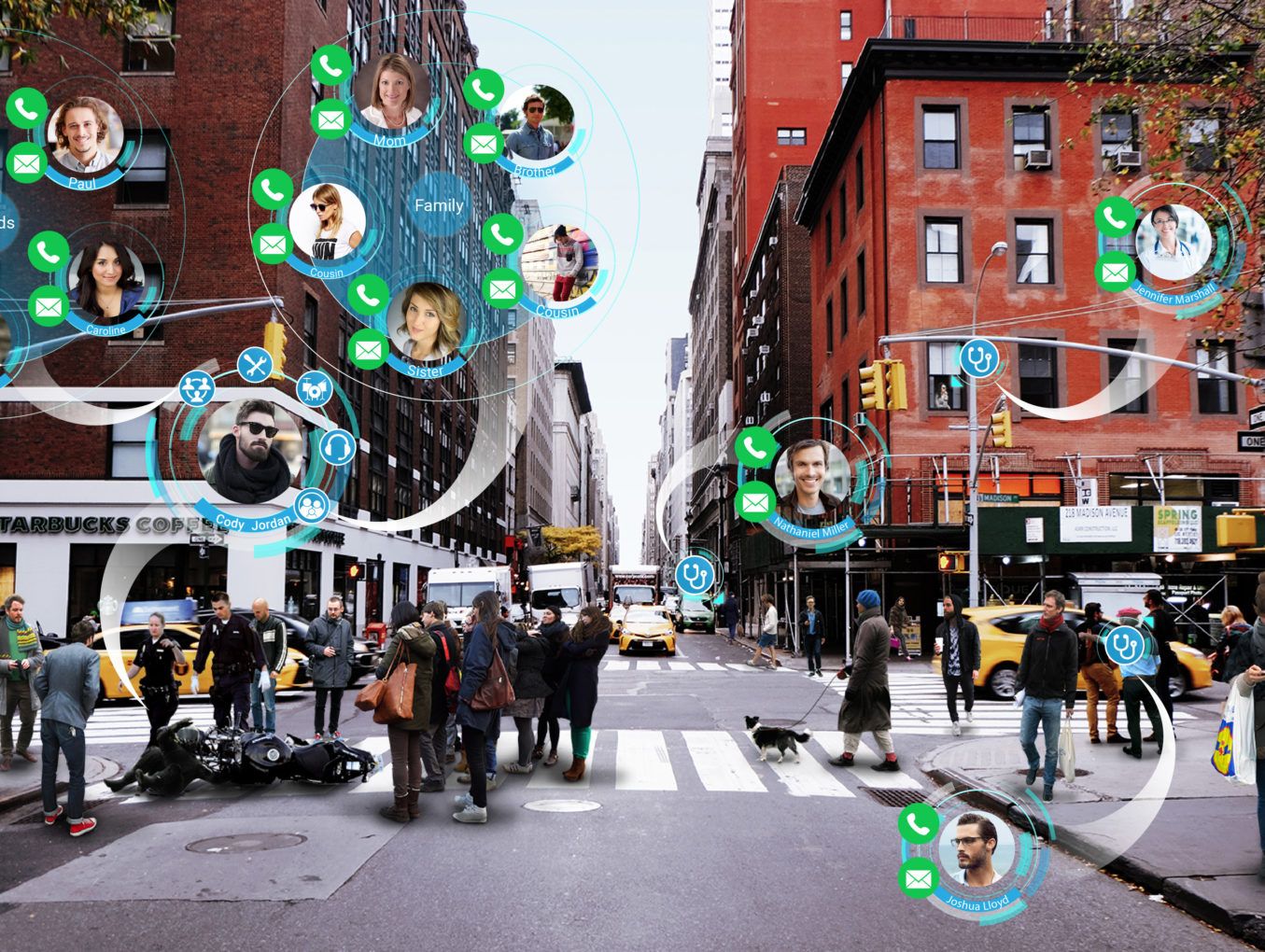
Recently read a response by Aarón Benítez to the article Should We Treat Data as Labor? Moving Beyond ‘Free’, by Imanol Arrieta Ibarra, Leonard Goff, Diego Jiménez Hernandez, Jaron Lanier and E. Glen Weyl from the prestigious Stanford, Columbia and Yale Universities and the Microsoft Corporation. In his response, Benítez places special emphasis on the issue of personal data value and how such value should be transferred to its owners through compensation by the large IT companies which use this data as a resource in their business processes.
The original article by Ibarra et al. suggests that the lack of such compensation to the producers of this data could harm the development of artificial intelligence-based systems. It even suggests that the development of these systems directly depends on encouraging people to keep producing data, to the point that AI development will be unable to flourish if personal data production is not rewarded.
The article also includes a discussion on the reasons why personal data should be treated more like a paid activity than an asset, and declares that those who produce the data should be the principal beneficiaries. This would pave the way for a data market.
This issue of property and use of personal data is not new. In recent years, the debate has centered on whether accepting the terms and conditions of different platforms such as Facebook, Twitter, LinkedIn or of different services such as Uber, AirBnB or eBay is a fair tradeoff. This is because our personal data are not only used to operate the specific platform or service we provide the data to; our data is also sold to other services, markets and unrelated third parties or used to sell us promotions based on our profiles and consumption patterns. Not to mention the risk that our data ends up in unwanted places because of security failings from those charged with protecting it. There is no shortage of recent examples of data theft, including malware, phishing attacks and server breaches from companies such as Spotify, Visa, Uber, Facebook and major banks.
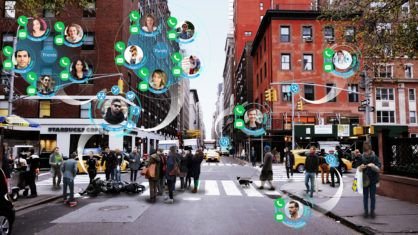
I do not think our intimate personal data should be sold for economic reward. Nevertheless, the standard data produced in our daily lives does generate value, a value which can and indeed must be both rewarded and used for social, scientific and commercial purposes. The data generated in our everyday lives (everyday data), provided it is employed ethically, can be used to significantly improve our quality of life, by helping to create a better society and providing a resource on which to build new products and services.
But how is it possible to share our everyday data without compromising our most important personal data? The Internet of People (IoP) is developing the infrastructure to make this distinction possible. IoP is a complete infrastructure for applications and payments which does not employ any centralized servers. Instead, IoP is fully decentralized and based on nodes. These nodes can be run from personal computers or even smaller devices such as a Raspberry Pi or smartphone.
The profile server is one of the key components in the infrastructure we are building at IoP. Together with the CAN and the LOC, explained below, the profile server is the safe-deposit box which protects users’ privacy while allowing peer-to-peer interaction.
The Content Addressable Network (CAN) is responsible for storing and serving content for P2P apps. In providing a network where content is addressable, the nodes and P2P apps can find content no matter where it is stored in the network. The nodes which host a CAN server create a true distributed database. This is equivalent to a CDN (Content Delivery Network) in current centralized systems, but built with point-to-point technology based on a bespoke fork of IPFS.
Geolocated services are provided based on the Location Based Network (LOC). This a point-to-point node-based network which organizes itself dynamically and autonomously according to the specific geolocation configured by the node operator hosting the network. The profile and proximity servers are registered in the LOC network which allows the system to establish its location and facilitate geolocation. This capability allows many functions which users expect from modern apps and which are difficult to accomplish in any other way.
Establishing relations between location based nodes also helps protect the network against certain types of attacks, because it provides a trustworthy network for these nodes which sits above the less reliable underlying network provided by the internet service providers.
Thanks to the profile server, users can register and maintain personal data in their own devices without this data travelling across unsecured networks or being stored in third-party servers. Further data will be associated with this personal data: any of a user’s current social network configurations, hobbies, preferences and other data they are prepared to share can be found in the network through the Open Social Graph. The Open Social Graph maintains everyone’s public profiles, linked such that they can be found according to users’ characteristics and availability based on certain topics and keywords, as well as indirect geolocation.
The Open Social Graph is something like a giant digital bulletin board where people can publish their different interests and be found by like-minded people or companies.
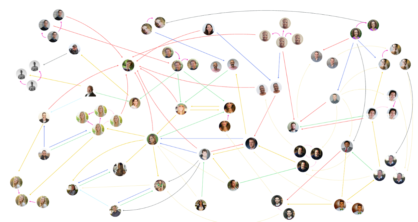
The main difference between this approach and that of other databases such as those used by Facebook, Twitter, LinkedIn or Google is that users have full control over their information. You can upload as much or as little information about yourself as you like. You can also upload as many different versions of yourself as you want: one profile for social networks, one for business dealings, and so on.
It is a cryptographically secure database, which ensures that no one can alter or misuse your data. With this technology, users can choose to interact with each other anonymously, via a pseudonym or entirely openly. They can also mix and match these approaches in different contexts. Users have complete control over who has access to their data and can revoke that permission if they are not happy with how it is being used.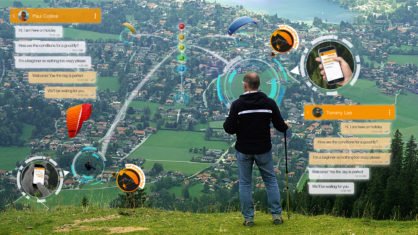
Open Social Graph solves one of the main problems with the current Internet: lack of control over personal data. In the Internet of People, your digital self can travel through cyberspace using the suit it prefers, being who it chooses to be and with whom it chooses to be.
Using this system, any person or company who is connected to our P2P network and looking for individuals to obtain user data could reach out to them and invite them to participate in a data collection program in exchange for some reward. All we ask is that the reward be given in our token, IOP.
In the future, users will be able to participate in programs where, based on profile characteristics, researchers would contact them directly offering to collaborate in a research study into such varied topics as sleep patterns, exercise habits, food purchasing habits, reading times or the websites they visit. Data would always be given in exchange for IOPs, deposited daily into the digital wallet on users’ smartphones. Another example would be voluntary participation in a research program into air quality in open spaces, with data gathered using a sensor in users’ mobile devices.
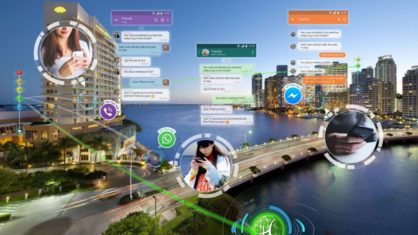
By participating in such research programs based around data collection, each user will establish a reputation which can later be used when selecting the best candidates for different programs. This would make sense for those who want to frequently participate in such studies as a regular source of income.
In this approach to selecting and rewarding candidates for participating in research studies, their personal data is never compromised. We can move from a ‘Personal Data as Labor’ to an ‘Everyday Data as Labor’ model in a anonymous, secure and transparent way. The Internet of People infrastructure is ready for provide this.
Perhaps you would like to contribute to the first community of rewarded data generators using our IoP infrastructure? In the Internet of People, people come first. Privacy is one of our core values.
If you would like to learn more, please visit us at https://iop.global